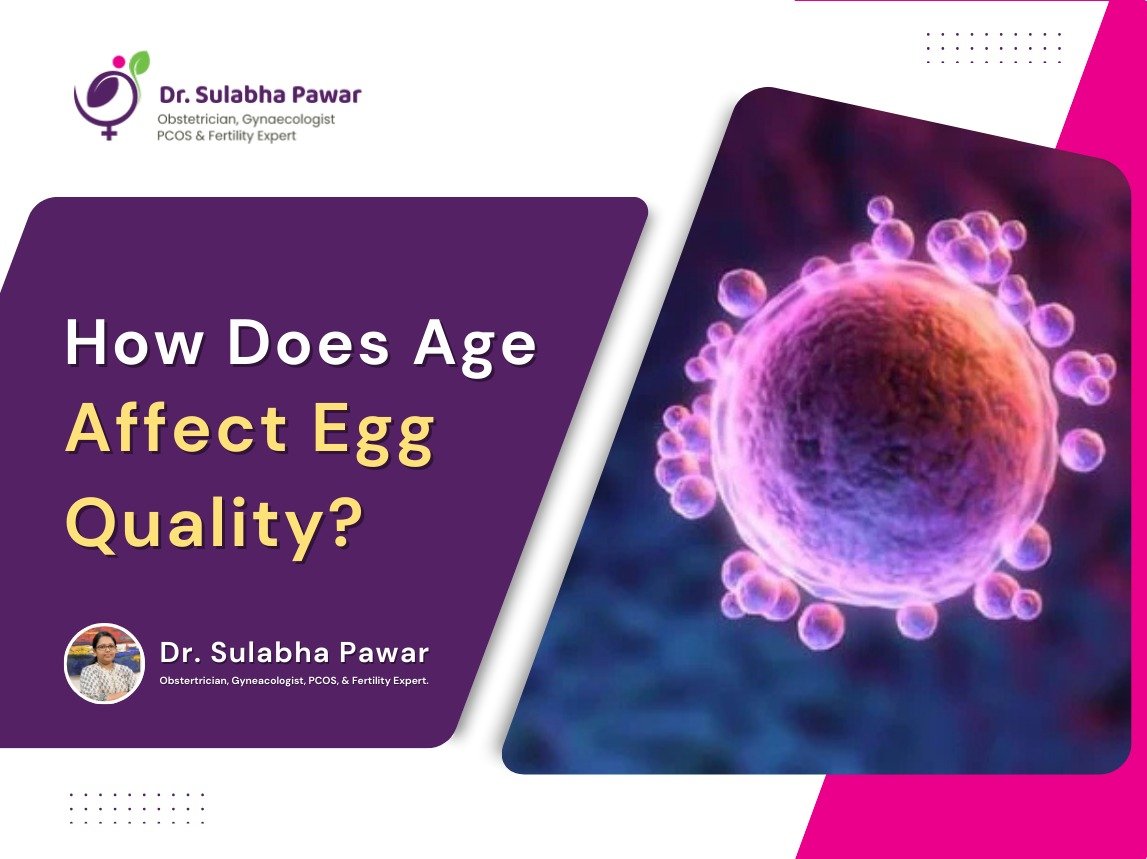How Does Age Affect Egg Quality? - Dr. Sulabha Pawar
Introduction
Egg quality is a crucial factor in female fertility. As women age, their ovarian reserve and egg quality decline, which can affect their chances of conception and pregnancy outcomes. Understanding how age impacts egg quality can help women make informed reproductive decisions.
The Relationship Between Age and Egg Quality
Women are born with a finite number of eggs, approximately 1-2 million at birth. By puberty, this number decreases to around 300,000 to 400,000. Each menstrual cycle, a group of eggs begins to mature, but only one is usually released during ovulation. As a woman ages, both the quantity and quality of eggs decline.
1. Declining Ovarian Reserve
- The number of eggs naturally decreases over time.
- By the age of 35, egg count significantly declines.
- By 40, the chances of natural conception are significantly reduced.
2. Chromosomal Abnormalities
- As eggs age, they are more likely to develop chromosomal abnormalities.
- These abnormalities increase the risk of miscarriage and genetic disorders like Down syndrome.
3. Reduced Fertilization Potential
- Older eggs have a lower likelihood of being fertilized.
- Embryos from aged eggs may have a reduced ability to implant in the uterus.
4. Increased Risk of Pregnancy Complications
- Women over 35 have a higher risk of pregnancy-related complications, such as preeclampsia and gestational diabetes.
- The chances of miscarriage increase due to poor egg quality.
How to Preserve Egg Quality
While aging is inevitable, certain lifestyle choices and medical interventions can help preserve egg quality:
1. Healthy Diet and Lifestyle
- A balanced diet rich in antioxidants, vitamins, and minerals supports reproductive health.
- Regular exercise, stress management, and avoiding smoking or excessive alcohol consumption can help maintain egg quality.
2. Egg Freezing (Oocyte Cryopreservation)
- Women who wish to delay pregnancy can consider freezing their eggs at a younger age.
- This allows for better-quality eggs to be used later in life.
3. Fertility Treatments
- In-vitro fertilization (IVF) can be an option for women with low egg quality.
- Donor eggs are also an alternative for those with significantly diminished egg quality.
Conclusion
Age is a critical factor influencing egg quality and overall fertility. Women in their 20s and early 30s have the best chances of natural conception. However, advances in reproductive medicine provide options to overcome age-related fertility decline. Consulting a fertility specialist can help women explore the best path forward based on their individual circumstances.
For more information on fertility and reproductive health, consult with Dr. Sulabha Pawar today.




